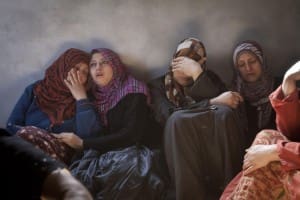Since the recent attacks on Gaza, and now the UN statehood vote, some folks have been asking me for resources about the Israeli-Palestinian conflict. Yay! Educating ourselves is the first step to taking responsible positions, and THAT will make it harder for the powers-that-be to do damage in our names.
Here’s a start of a list of resources that I think are good. Nothing’s perfect, of course, but I think these are worth your time. PLEASE add to the list by leaving a comment (teal button on the left). Include a link AND a sentence or two describing the resource. If you think I should add a “resources for further learning” tab to my website, let me know and I’ll put it on my list of things to do.
-Nora
This article talks about how Israel’s negotiation of a ceasefire in Gaza is essentially admission of the occupation that they have long denied.
http://972mag.com/ceasefire-tells-the-world-gaza-still-under-israeli-occupation/60669/
This article by the late, brilliant Edward Said back in 1988 argued against the declaration of a Palestinian state. Much of his solid, critical argument has validity even today.
http://weekly.ahram.org.eg/1998/397/op1.htm
Understanding the Israeli-Palestinian Conflict: A Primer by Phyllis Bennis is a book that I haven’t read, but given the author’s record, it is probably excellent. Even better, the entire book is available on line!
http://endtheoccupation.org/article.php?list=type&type=52
The Jewish Voice for Peace made a 6-minute video explaining the basics of the Israeli-Palestinian conflict. They also have information under the tab Israel/Palestine 101.
http://jewishvoiceforpeace.org/campaigns/israel-and-palestine-an-animated-introduction
If you’re willing to read a book, anything by Jonathan Cook is excellent (and he has a great blog).

